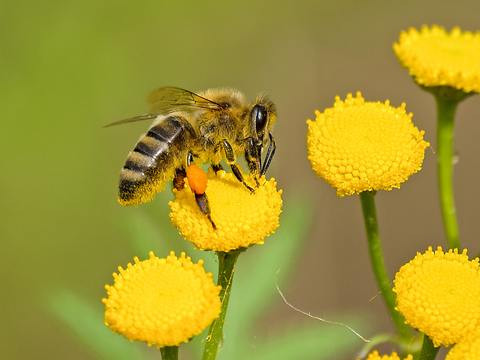At Kalpana NYC, we are passionate about creating and sharing products that celebrate the power of plants and the natural world. Unfortunately, the world’s incredible plants are at risk of losing their greatest ally: bees.
You may have been hearing about bee decline for several years now, but the risk of bees becoming endangered is greater than ever today. The loss of bees can have devastating effects on our ecosystem. These changes, if left unaddressed, could destabilize the global food supply and take many of our most familiar and beloved foods off the menu - permanently.
Bees are our most valuable pollinators, and without them, crops and wild plants around the world can’t reproduce and survive. In fact, the current levels of bee decline are already starting to have an effect on farmers and delicate ecosystems.
So what is causing bee populations to decline around the world?
Bee colonies are being unprecedentedly affected by a condition called Colony Collapse Disorder (CCD). CCD describes when the worker bees of a colony disappear from the hive, leaving behind the queen bee, nurse bees, and young.
In a bee colony, the queen bee’s role is to produce all of the young. She stays in the hive, assisted by nurse bees, while the worker bees (who are also female) venture outside to gather nectar, pollen, or water. Worker bees also perform other essential jobs for the colony such as guarding, processing honey, building the hive, attending the queen and feeding young. If worker bees disappear from a hive, it’s not long before the entire colony collapses.
Many environmentalists blame CCD on one class of pesticides known as neonicotinoids. Neonicotinoids are certainly a contributing factor to bee decline and have been banned in the European Union since 2018. However, studies show that there are actually several causes for CCD.
Some bee colonies in wild areas are not exposed to pesticides but are still seeing rates of decline. Studies on these colonies showed that a type of parasite called Nosema ceranae, as well as Lake Sinai Virus was consistently present in these colonies and could be a major cause of CCD. However, the same studies showed that factors like loss of habitat, immunodeficiencies, malnutrition and various pathogens are also contributing to bee decline.
In short, there’s probably not a singular cause of Colony Collapse Disorder, but contributing environmental conditions and agricultural practices around the world are causing bees to die off at an alarming rate.
It’s easy to get overwhelmed by the news of our ever-more-fragile environment. However, there are things we can do as individuals to help. Speaking to your political representatives about pesticide bans, cutting down on factory-farmed meat, buying organic and supporting environmentally-friendly companies are all great places to start.
At Kalpana, we only work with producers who share our philosophy of nurturing the environment… and our bees. We only put our name behind pure, organic essential oils and skincare products because we want our planet to thrive for generations to come. Visit our store now to check out our range of environmentally friendly (and bee-friendly!) products.

